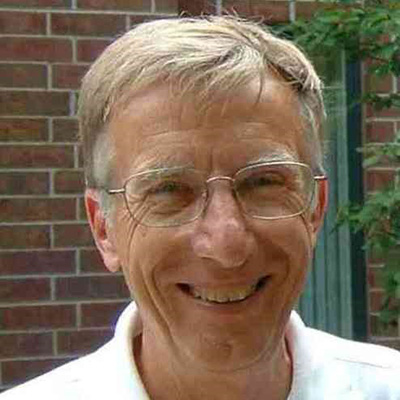In memoriam: Donald J. Graves
Donald John Graves, a biochemist and educator, died June 21 in Woodbury, Minnesota, at the age of 90. He was a member of the American Society for Biochemistry and Molecular Biology for almost 60 years, a former member of the Journal of Biological Chemistry editorial board.

Born on October 15, 1933, in Evanston, Illinois, Graves was the second son of Fred and Pearl Graves, immigrants from Lithuania and Poland. Raised in a small Chicago apartment, he grew up passionate about baseball and science, influenced by his supportive parents and teachers, according to a family obituary. He excelled in school, graduating from Evanston High School in 1951, and became the first member of his family to attend college.
Graves earned his undergraduate degree at the University of Illinois Urbana–Champaign. At the University of Washington, he conducted research as a graduate student under Nobel laureates Edwin Krebs and Edmond Fischer. In 1959, he earned his Ph.D. in biochemistry and began a postdoctoral fellowship at the University of Minnesota.
In 1961, Graves joined Iowa State University as a founding member of the biochemistry department. Over his 39-year career there, he became a distinguished professor, shaping the department and helping design the Molecular Biology Building. He was the first ISU faculty member to receive the National Institutes of Health Career Development Award. After retiring to California in 2000, Graves volunteered at the University of California Santa Barbara, where he mentored graduate students and researched cinnamon's bioactive compounds.
In his research Graves made discoveries in enzyme regulation and glycogen metabolism. Notably, in his later work at UC Santa Barbara and the U.S. Department of Agriculture, he uncovered the potential of compounds in cinnamon to enhance insulin’s effectiveness, presenting a promising new approach to treat Type 2 diabetes. His studies showed that these natural compounds could lower blood glucose and cholesterol levels, suggesting cinnamon might become a cost-effective and widely accessible treatment. Graves also made contributions to Alzheimer's research, finding that specific components of cinnamon could inhibit the formation of damaging protein tangles in the brain, a key feature of Alzheimer's disease.
Graves was known for his kindness and commitment to mentorship. He supported many students and researchers and advocated for diversity and community involvement. He and his wife, Marge, co-sponsored a Vietnamese family and hosted exchange students, showing their dedication to global connections. A lifelong runner, he completed three marathons and numerous half marathons, continuing to run into his late 60s. After surviving prostate cancer, he founded a foot race to raise awareness and funds for that disease.
Donald Graves is survived by his wife of 66 years, Marge; his five children, Brian and his wife Jody, Lee and his wife Lori, Stephen and his wife Amy, Ann and her husband David, and Paul and his wife Fumika; and his numerous grandchildren and great-grandchildren.
Enjoy reading ASBMB Today?
Become a member to receive the print edition four times a year and the digital edition monthly.
Learn moreGet the latest from ASBMB Today
Enter your email address, and we’ll send you a weekly email with recent articles, interviews and more.
Latest in People
People highlights or most popular articles

Sketching, scribbling and scicomm
Graduate student Ari Paiz describes how her love of science and art blend to make her an effective science communicator.

Embrace your neurodivergence and flourish in college
This guide offers practical advice on setting yourself up for success — learn how to leverage campus resources, work with professors and embrace your strengths.

Survival tools for a neurodivergent brain in academia
Working in academia is hard, and being neurodivergent makes it harder. Here are a few tools that may help, from a Ph.D. student with ADHD.

Quieting the static: Building inclusive STEM classrooms
Christin Monroe, an assistant professor of chemistry at Landmark College, offers practical tips to help educators make their classrooms more accessible to neurodivergent scientists.

Hidden strengths of an autistic scientist
Navigating the world of scientific research as an autistic scientist comes with unique challenges —microaggressions, communication hurdles and the constant pressure to conform to social norms, postbaccalaureate student Taylor Stolberg writes.

Richard Silverman to speak at ASBMB 2025
Richard Silverman and Melissa Moore are the featured speakers at the ASBMB annual meeting to be held April 12-15 in Chicago.

